Tashi Lhunpo, Bylakuppé, Karnataka, India - This morning His Holiness the Dalai Lama attended a presentation of debate skills by monk-scholars from the major Geluk monastic centres of learning, who are participating in the Jamchö and Riktsog Winter Debate Session as part of the six year Geshé Lharampa programme. The word ‘Jamchö’ refers to treatises by Maitreya, while ‘Riktsog’ refers to Nagarjuna’s ‘Six Collections of Reasoning’. An estimated 1500 monks were present.
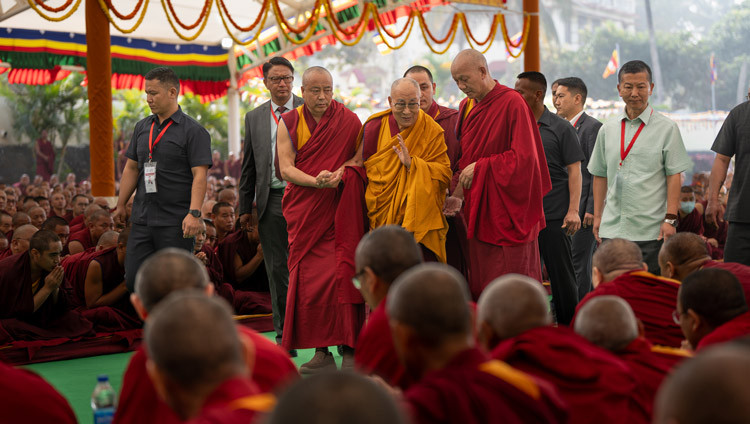
His Holiness came down through the temple and at the steps before the door climbed into a golfcart. He then drove down to the debate courtyard in front of the temple and past the golden statue of the Tibetan king, Songtsen Gampo mounted on a horse.
The monks had gathered early in the morning and while waiting for His Holiness’s arrival recited the mantra of Shakyamuni Buddha. As he approached, they switched to reciting his name mantra. Once he reached the edge of the assembly of monks His Holiness got down from the golfcart and walked to where he took his seat facing the monks. They then chanted the ‘Praise to the Seventeen Masters of Nalanda’. Sharpa Chöjé Rinpoché sat to his right.
The first debate began with monks from Ganden Shartsé and Drepung Loseling posing as challengers while monks from Ratö and Drepung Gomang were respondents. To begin with they focussed on two lines from Nagarjuna’s ‘Fundamental Wisdom’, the ‘Mulamadhyamikakarika’. The debating monks touched on topics discussed in the various chapters of ‘Fundamental Wisdom’ including the assertions of lower schools of philosophy that things exist inherently because they have been produced. They discussed the ignorance of grasping at inherent existence, how dependent arising complements emptiness, and whether Arya Bodhisattvas perceive emptiness while they are fully absorbed in emptiness.
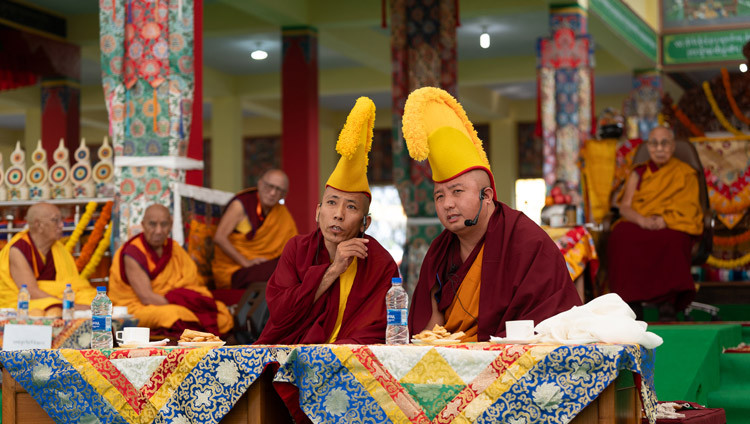
During the second debate monks from Tashi Lhunpo and Gaden Jangtsé stood as challengers while monks from Sera Jé and Sera Mé sat as respondents. Their debate focussed on the topic of Buddha Nature as it is explained in Maitreya’s ‘Sublime Continuum of the Great Vehicle’, the ‘Mahayana Uttaratantra’.
Challenged to say what the meaning of Buddha Nature is, the respondents declared that it is the main cause for accomplishing buddhahood. The debate went on to discuss the naturally abiding Buddha Nature and progressively nurtured Buddha Nature. As the vigorous debate reached a conclusion auspicious lines were said to bring it to a formal end. Representatives of the debating monks sought His Holiness’s blessing for them and their colleagues.
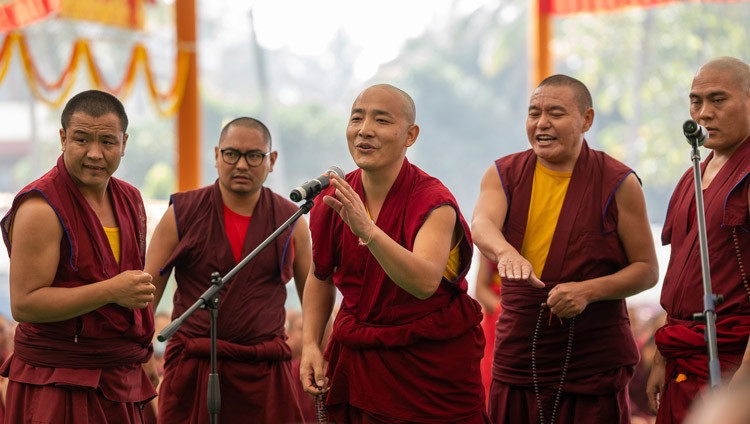
In a brief address to the gathering His Holiness mentioned how effective debate is as a method for overcoming misconceptions about reality.
“When I was studying, I used to practise debate with my debating assistants. I found it helped me a great deal when I encountered points that needed clarification. Debate really helped me gain insight and understanding of different topics.
“When we debate, we employ different logical processes. It is said that when you are able to persuade your opponent to concede to the truth of something that isn’t actually true, you have really become a proficient debater. Still, this may be simply an intellectual accomplishment. The real point of engaging in argument and debate however is to transform our minds. This we can do by coming to understand the various topics we’ve been studying in the light of logic and reason. It is in this context that debate is so important for enhancing our understanding. I feel that it is particularly effective.
“You have presented your debate skills here in front of me today and I’d like to thank you.
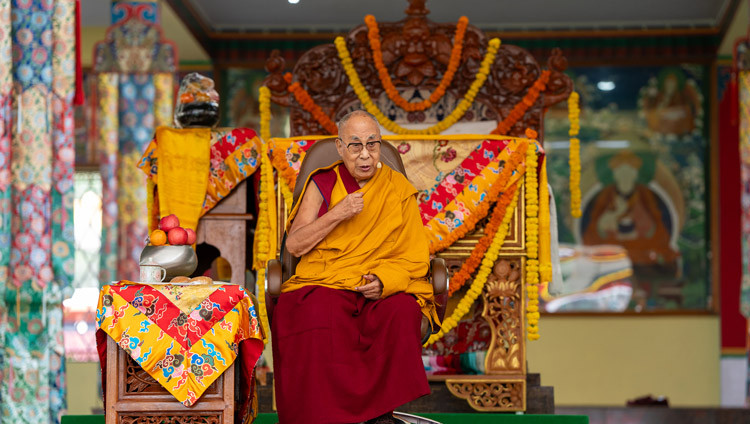
“When I was studying, I had several debate assistants among whom was one Déyang Rinpoché. He wasn’t as bright as some of the other debate assistants so when I debated with him, I used to win.
“Anyway, what I really want to stress to you is that debate is immensely effective method for helping us understand what we’ve been studying. Of course, there are other religious traditions such as Hinduism and so forth that are founded on faith. But in our studies of Buddhism, we investigate what the Buddha taught through the medium of debate. In the company of my debating assistants, I was able to investigate the teaching of the Buddha, which I found very beneficial. So, I would urge you too to delve into the teaching of the Buddha by employing logic and reasoning. Please, do your best in your studies.
“That’s all I have to say today.”
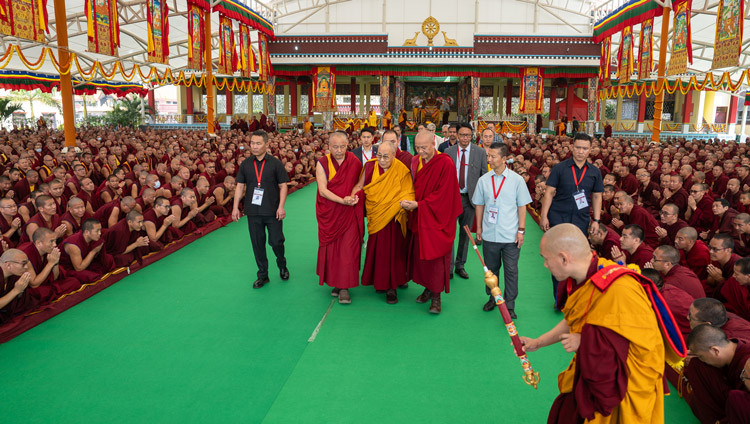
As His Holiness left the debate courtyard the monks chanted the prayer for his long life composed by his two tutors Kyabjé Ling Rinpoché and Kyabjé Trijang Rinpoché. In the golfcart he drove once more round the statue of Songtsen Gampo and up the driveway to the temple porch on his way back to where he is staying.












